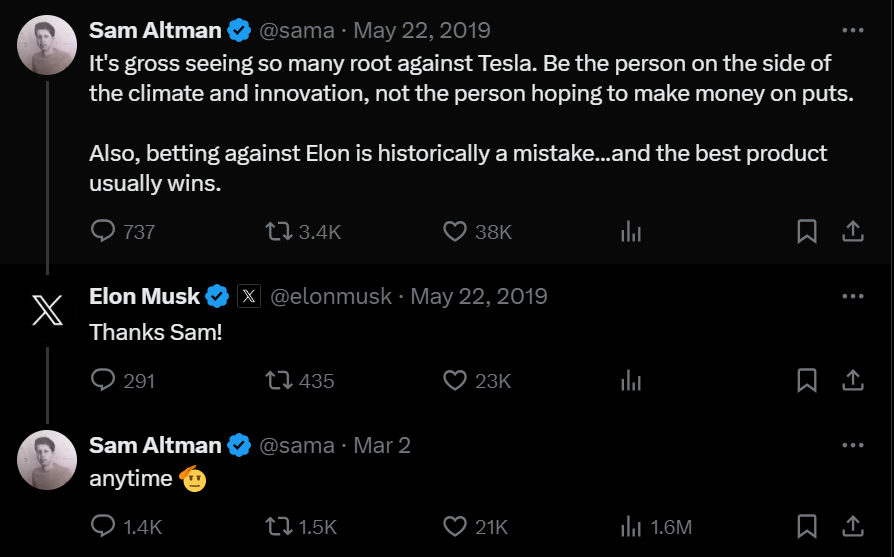Elon Musk recently filed a lawsuit against OpenAI, accusing the company of breaching its contract and prioritizing Microsoft’s profits over its mission to benefit humanity. Musk, a co-founder of OpenAI in 2015, has been critical of the company and its AI chatbot, ChatGPT. Despite his past jabs at the AI tool, Musk sued OpenAI, sparking immediate headlines.
OpenAI CEO Sam Altman now reminds Musk of his support during a challenging time for Tesla in 2019. Altman shared an old conversation on Twitter, emphasizing the importance of standing by innovation and climate action. Musk acknowledged Altman’s support in the exchange.

Altman’s recent response to Musk’s tweet is more than a four-year-old acknowledgment; it’s a strategic move to bring attention to the supportive interaction. OpenAI, initially a non-profit research company with a mission to safeguard humanity from AI threats, transitioned to a for-profit model in 2019, collaborating with Microsoft and other major corporations.
Also Read:
Elon Musk resigned from OpenAI in 2018, and reports suggest various reasons for his departure, including conflicts over company control. In 2019, OpenAI shifted its focus, and its generative AI chatbot, ChatGPT, gained widespread attention in 2022, making OpenAI and its founder, Sam Altman, household names.
While the free version of ChatGPT, based on GPT-3.5, remains accessible, OpenAI introduced a paid, more advanced version. This paid version, utilizing OpenAI’s latest language model, GPT-4, offers enhanced features. OpenAI’s evolution into a for-profit entity and its strategic partnerships have propelled it into the limelight, marking a significant transformation from its initial non-profit research roots.











